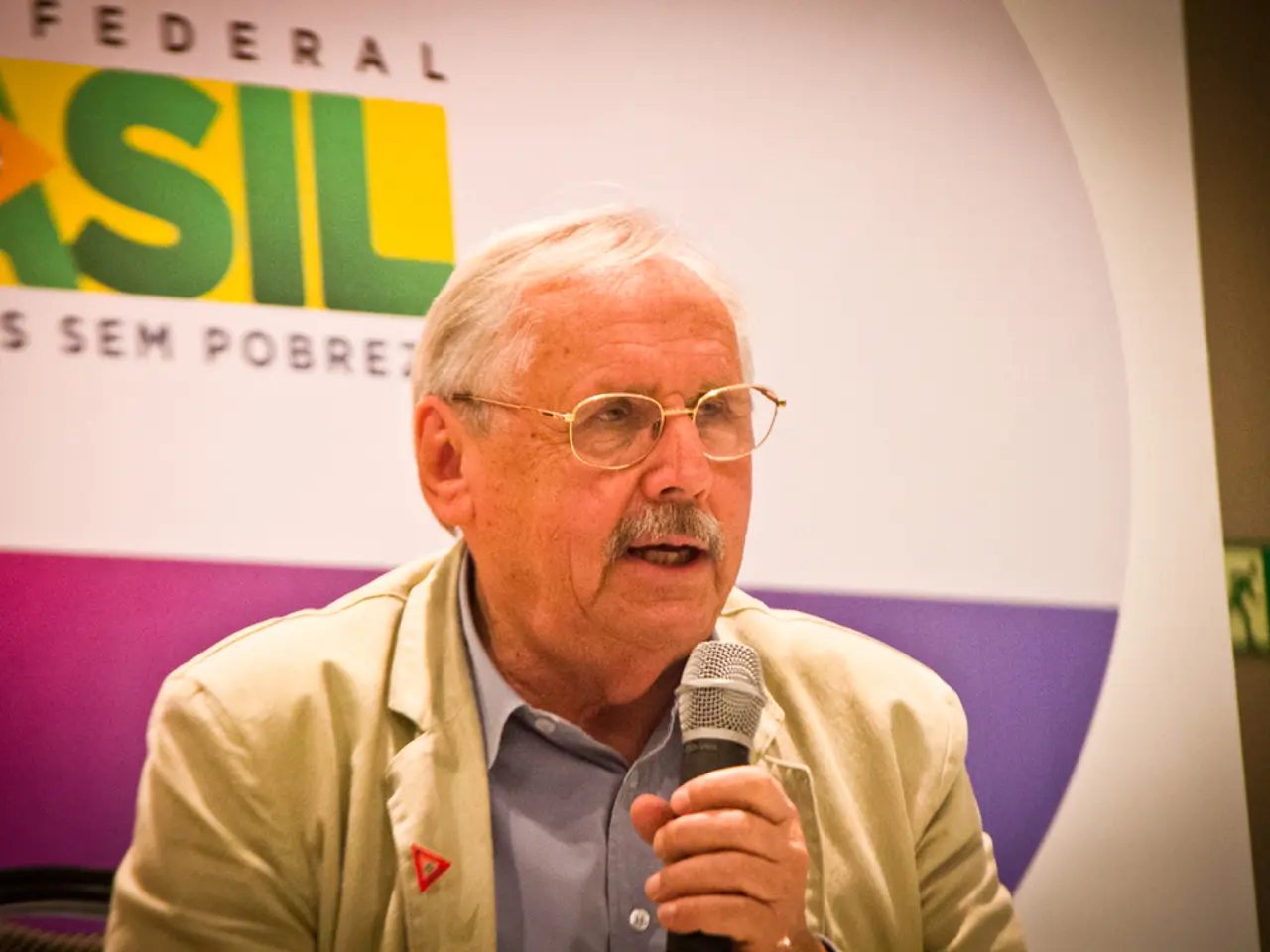Politics and Infrastructure: Main Points Discussed in Deb Haaland's Questioning Session
Rep. Deb Haaland, a Democrat and climate advocate, testified before the Senate Committee on Energy and Natural Resources on Tuesday for the position of secretary of the Interior. If confirmed, Haaland would become the first Native American cabinet secretary in U.S. history.
Haaland's stance on oil, gas, and coal infrastructure has been a point of contention, particularly her opposition to projects like the Keystone XL and Dakota Access pipelines. These positions align with President Biden's climate-focused agenda, which emphasizes climate action, environmental justice, and the reduction of fossil fuel dependence.
During the hearing, Haaland expressed her willingness to work across the aisle to find bipartisan solutions to U.S. energy needs. However, some Republican senators were critical of Haaland's support for climate action, questioning her stance on oil, gas, and coal on federal lands. Haaland, however, did not reject oil, gas, and coal infrastructure during the hearing, stating that she would continue permitting leases on federal lands.
Haaland's background as a Native American leader and climate advocate informs her approach, which strongly supports renewable energy investment and opposes new fossil fuel infrastructure that risks the environment and indigenous rights. This approach is consistent with the Biden administration’s broader agenda, including the Infrastructure Investment and Jobs Act, which funds carbon capture, direct air capture hubs, and other clean energy initiatives while curtailing support for new fossil fuel pipelines.
In addition to her climate policy, Haaland highlighted the missing and murdered Indigenous crisis as a priority for her as secretary. This issue is linked to oil pipelines, as they bring camps of men into vulnerable Indigenous communities. Haaland passed a bipartisan bill on the missing and murdered Indigenous crisis during her time in Congress.
The Civilian Climate Corps, a proposal to train young people on conservation and help repair and transform national parks and green spaces, is another initiative Haaland supports. Investing in a global "green economy" could create up to 24 million jobs worldwide, according to some estimates.
Despite the criticism from some Republican senators, the Biden administration has promised to create 10 million new jobs in the clean energy sector. Last year, 118,000 fossil fuel jobs were lost, not due to the actions of Haaland or President Biden.
Haaland's involvement in reforms related to the Dakota Access Pipeline (DAPL) is also worth noting. While only a small portion of DAPL requires federal approval, its construction raised significant concerns about inadequate tribal consultation under the Army Corps of Engineers and environmental impacts. The administration is considering changes in how tribes participate in infrastructure reviews to address these concerns.
Haaland, a participant in the 2016 protests against the Dakota Access pipeline, played a key role in halting the Keystone XL pipeline permit shortly after Biden took office, reflecting her and the administration's commitment to stopping projects that exacerbate climate change and threaten tribal lands.
In summary, Rep. Deb Haaland’s stance on oil, gas, and coal infrastructure is to limit and regulate such projects, particularly pipelines like Keystone XL and DAPL, aligning with President Biden’s climate-focused agenda to reduce fossil fuel infrastructure and prioritize environmental justice and tribal consultation. The Senate Committee will vote on Haaland's nomination in the coming weeks.
[1] https://www.whitehouse.gov/briefing-room/statements-releases/2021/01/20/fact-sheet-president-biden-s-day-one-actions-to-protect-public-health-and-the-environment-and-tackle-the-climate-crisis/ [3] https://www.whitehouse.gov/briefing-room/press-briefings/2021/03/31/fact-sheet-the-biden-harris-administrations-infrastructure-investment-and-jobs-act/
- Rep. Deb Haaland, as a climate advocate, finds strong support for her stance on limiting and regulating oil, gas, and coal infrastructure, particularly pipelines like Keystone XL and Dakota Access, aligning with President Biden's climate-focused agenda.
- Haaland's commitment to environmental justice and tribal consultation in infrastructure projects, such as the Dakota Access Pipeline, is an integral part of her approach, reflecting her background as a Native American leader and climate advocate.
- Haaland's background in community activism and advocacy for environmental-science-based policies, coupled with her stance on climate-change issues, could be particularly beneficial for addressing the missing and murdered Indigenous crisis.
- The Biden administration's Infrastructure Investment and Jobs Act, which supports clean energy initiatives and curtails support for new fossil fuel pipelines, exemplifies the broader agenda Haaland shares with the administration in addressing climate change and promoting renewable energy.
- Haaland's support for programs like the Civilian Climate Corps, which aims to train young people on conservation and create jobs in the clean energy sector, aligns with the Biden administration's promise to create 10 million new jobs in the clean energy sector, countering the loss of 118,000 fossil fuel jobs last year.





